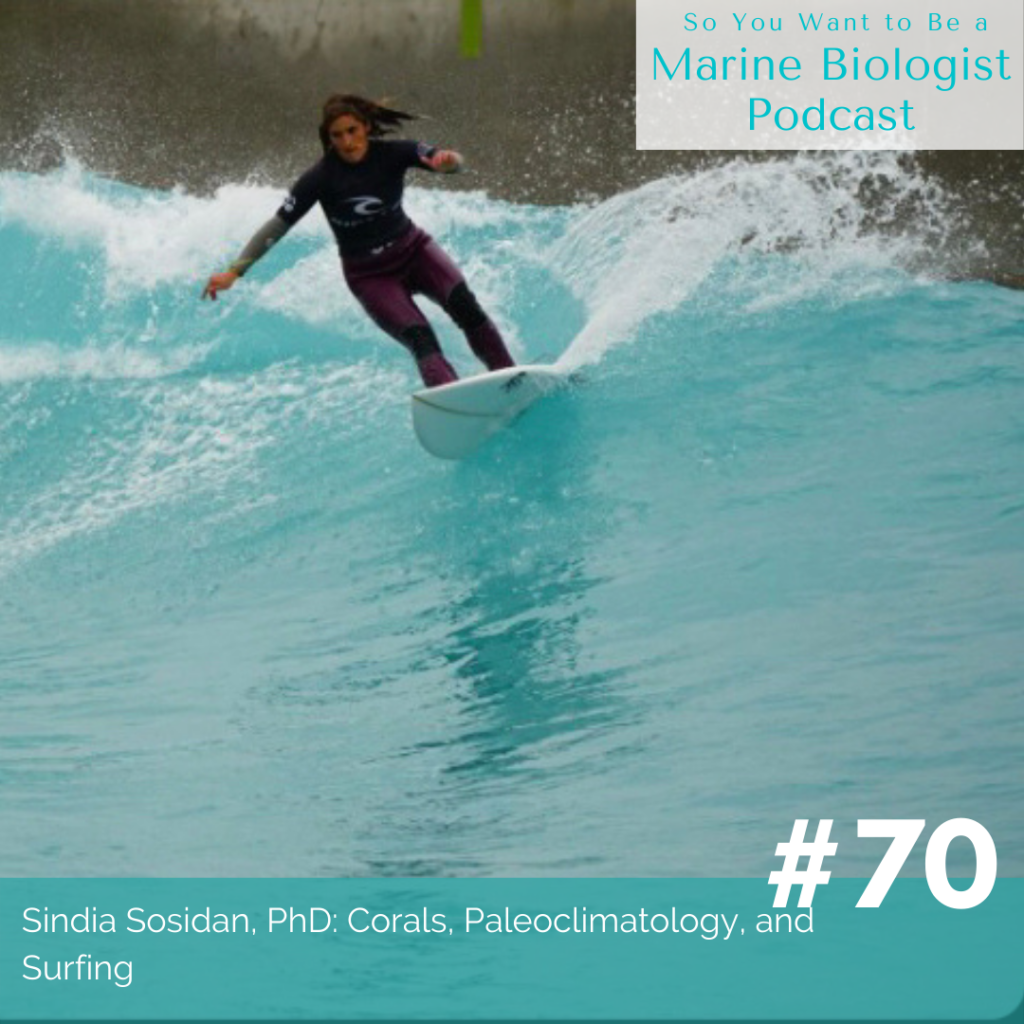Sindia is a paleoclimatologist, which means she studies how the earth used to look, millions of years ago, in order to better understand what may be going on with our current climate. Sindia is a past Sir Keith Murdoch fellow, Fulbright Distinguished Scholar, and currently teaches and conducts research at Cardiff University in the UK. In today’s episode, we chat about how surfing influenced Sindia’s worldwide travel and studies taking her from the States to Australia, and then the UK, what paleoclimateology is and how you can get involved.
Connect with Sindia: Twitter| website
Quick Links
Paleo-climatology
Geochemistry
Calcium carbonate
Foraminifera
Multi-corer
Piston corer
Australia National University
Radiocarbon dating
Ocean Drilling Program
Megalodon sharks
Ocean acidification
Anthropocene
Porites coral
Cloudbreak in Fiji
Borneo
Geomorphology
Bristol Channel
Mound corals
Bioeroders
Honeycomb reefs
American Australian Association
Sir Keith Murdoch Fellowship
Fulbright Fellowship
Show Notes
00:17 – Sindia provides some insights into what a paleo-climatogist does. Picture Dennis Quaid in the “Day After Tomorrow.”
6:34 – “I feel actually quite lucky that every day I walk around and I’m aware of this topic and subject.” What got Sindia into paleo-climatology, and how is surfing part of it?
9:24 – What does a research expedition look like for a paleo-climatologist, and how does the experience differ when you’re a PhD student versus a full-time researcher? Sindia describes one research expedition she went on as a PhD student that took her to Norwegian waters.
14:42: Some of Sindia’s research with the Australian National University involved studying what happens to corals after they’re uplifted during earthquakes.
20:16 – Part of Sindia’s current research involves looking at past warm periods (when the atmospheric carbon dioxide was at similar levels to what they are today) and seeing what ocean temperatures were like. She also examines aspects like how hot it was in the tropics, how much ice there was at the poles, and what the ocean acidity looked like. She’s done some work looking at the temperatures of around 15 million years ago.
22:18 – What’s the pH level that’s predicted for the ocean’s acidity in 2100?
24:43 – “It’s hard to find modern analogs with that rate of change … because when we look at the geological record most instances are slower time scales.”
26:07 – Sindia’s most recent work involves looking at just the last one hundred years in coral reef environments.
26:43 – With X-rays and 3-D imaging of coral skeletons, you can look at periods in which the coral grew very fast and periods when they grew slower.
36:51 – What does the ocean mean to Sindia? “When I think about our future, I think about the ocean.”
38:55 – Sindia comes from a surfing family, so she’s not quite sure why it took her until she was 16 to learn how to surf. She’s made up for lost time though; listen to Sindia share a bit about her lifelong passion for surfing.
44:28 – From Australia, Sindia moved to the U.K. What prompted this move?
46:11 – If Sindia was given a blank check to use on any program she wanted, she would create a global literacy program across the world, an “earth citizen literacy program.”
50:56 – One of Sindia’s favorite field stories comes from her time working in Fiji with two other female scientists.
53:52 – Sindia encourages listeners to learn more about what’s going on in their local communities – whether that involves climate or the acidity in the nearby water – and then getting involved with any local groups.
